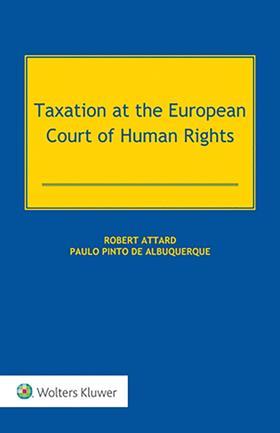How tax leaves an imprint on human rights
Taxation at the European Court of Human Rights
Robert Attard, Paulo Pinto de Albuquerque
£88, Kluwer Law International
★★✩✩✩
The opening note of this exploration of the treatment of tax and tax-related issues by the European Court of Human Rights (ECtHR) sets the scene. The subject of taxation barely features in the text of the European Convention on Human Rights, resulting in a close reading of case law. What follows is a trawl through the authorities to consider – seemingly – any and all mentions of tax in a human rights context.
What emerges is a surprisingly human story of the ECtHR consideration of tax and fundamental rights. The book works chronologically through the articles of the convention: Article 1 and the protection of property, Article 2, the right to life and so on.

It is not entirely clear to whom the work is addressed. Those interested specifically in tax outcomes, for example, may not be particularly concerned by the three cases under Article 3, the prohibition of torture or inhuman or degrading treatment or punishment. That is despite the drama – the head of the tax police who assaults the owner of a company under investigation by the tax authorities, with the resulting claim prompting comments from the court about tax procedures not being immune from the basic standards of humanity.
That is something of a theme itself. An epilogue considers the fundamental rights of the tax evader and tax avoider: whatever else, tax rules need to be proportionate and not create excessive burdens on the individual who, if facing proceedings, must have the right of access to a court. The tax rogue – as readers may have already assumed – should receive the benefit of due process like anyone else.
More along expected lines might be the discussion of Article 4 and the prohibition on enforced labour. The authors consider a claim by a company that its obligation to deduct tax as part of a PAYE system under national tax law was an unjust burden given the lack of recompense, and therefore properly characterised as compulsory labour that went beyond ‘mere civic obligations’. The ECtHR had no time for such a position; the court was not even convinced that the Article’s provisions would apply to companies, where there would be employees to lighten the load.
As a study of a theme and a review of case law it is an interesting publication, while acknowledging that tax touches the convention in a relatively peripheral manner. Students of the subject may find it fascinating.
Tom Proverbs-Garbett is a consultant































No comments yet